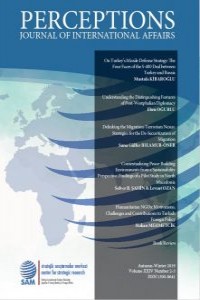Abstract
The notion of a “migration-terrorism nexus” is gaining political momentum, despite the lack of evidence to support it, and even the existence of evidence to
the contrary. This paper, while assessing the validity of the supposed link between terrorism and migration, will seek to show why and how the crackdown on
migration and liberties actually create conditions conducive to terrorism. The answer as to why we tend to easily associate migration with terrorism lies in the
securitization of migration and asylum, which will be analyzed in this paper. The broader securitizing discourse constructing migration as a security and even a
terrorist threat has been shaping migration policy-making for almost three decades. A series of policy practices with a very heavy human cost, such as borderization
practices, interception at sea, push-back operations, and the building of fences or walls to stop the refugee influx, which prioritize border security over human
lives, show how this securitizing discourse is effective or “successful”. The paper argues that the over-securitization of migration has very negative implications
for human lives and rights as well as for democracy and liberties. It seeks to make a case for delinking migration and terrorism and for policy strategies that
could be pursued to move migration out of the security framework and ultimately desecuritize migration.
Keywords
critical security studies Copenhagen school migration-terrorism nexus securitization of migration migration policy-making desecuritization strategies
References
- Kaynakça yok
Details
| Primary Language | English |
|---|---|
| Subjects | Political Science |
| Journal Section | Articles |
| Authors | |
| Publication Date | December 27, 2019 |
| Published in Issue | Year 2019 Volume: 24 Issue: 2 |

